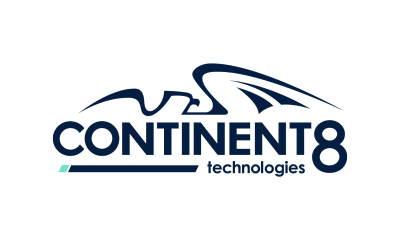Latest News
Worldwide Online Gambling Industry to 2030 – Major Players Include 888 Holdings, William Hill and Paddy Power Among Others

The “Online Gambling Global Market Report 2021: COVID-19 Growth and Change to 2030” report has been added to ResearchAndMarkets.com’s offering.
This report provides strategists, marketers and senior management with the critical information they need to assess the global online gambling market.
This report focuses on the online gambling market which is experiencing strong growth. The report gives a guide to the online gambling market which will be of significance over the next ten years and beyond, including the market’s response to the challenge of the global pandemic.
The global online gambling market is expected to grow from $64.13 billion in 2020 to $72.02 billion in 2021 at a compound annual growth rate (CAGR) of 12.3%. The growth is mainly due to the companies resuming their operations and adapting to the new normal while recovering from the COVID-19 impact, which had earlier led to restrictive containment measures involving social distancing, remote working, and the closure of commercial activities that resulted in operational challenges. The market is expected to reach $112.09 billion in 2025 at a CAGR of 12%.
Reasons to Purchase
- Gain a truly global perspective with the most comprehensive report available on this market covering 12+ geographies.
- Understand how the market is being affected by the coronavirus and how it is likely to emerge and grow as the impact of the virus abates.
- Create regional and country strategies on the basis of local data and analysis.
- Identify growth segments for investment.
- Outperform competitors using forecast data and the drivers and trends shaping the market.
- Understand customers based on the latest market research findings.
- Benchmark performance against key competitors.
- Utilize the relationships between key data sets for superior strategizing.
- Suitable for supporting your internal and external presentations with reliable high quality data and analysis
- Report will be updated with the latest data and delivered to you within 3-5 working days of order.
Where is the largest and fastest growing market for the online gambling? How does the market relate to the overall economy, demography and other similar markets? What forces will shape the market going forward? The Online Gambling market global report answers all these questions and many more.
The report covers market characteristics, size and growth, segmentation, regional and country breakdowns, competitive landscape, market shares, trends and strategies for this market. It traces the market’s historic and forecast market growth by geography. It places the market within the context of the wider online gambling market, and compares it with other markets.
- The market characteristics section of the report defines and explains the market.
- The market size section gives the market size ($b) covering both the historic growth of the market, the impact of the COVID-19 virus and forecasting its recovery.
- Market segmentations break down market into sub markets.
- The regional and country breakdowns section gives an analysis of the market in each geography and the size of the market by geography and compares their historic and forecast growth. It covers the impact and recovery trajectory of COVID-19 for all regions, key developed countries and major emerging markets.
- Competitive landscape gives a description of the competitive nature of the market, market shares, and a description of the leading companies. Key financial deals which have shaped the market in recent years are identified.
- The trends and strategies section highlights the likely future developments in the market and suggests approaches companies can take to exploit this.
- The online gambling market section of the report gives context. It compares the online gambling market with other segments of the online gambling market by size and growth, historic and forecast. It analyses GDP proportion, expenditure per capita, online gambling indicators comparison.
Major players in the online gambling market are 888 Holdings PLC, Bet365 Group Ltd., Betsson AB, William Hill PLC, GVC Holdings PLC, Kindred Group PLC, Sky Betting & Gaming, Stars Group Inc., Ladbrokes Coral Group PLC and Paddy Power Betfair PLC.
The online gambling market comprises of revenue generated by remote gaming activities by means of the internet using desktop and mobile devices. The market includes gambling establishments developing online sports betting, casino, bingo, lotteries, and poker games, among others.
The online gambling laws vary wildly from one region to other. Most countries have their own local laws that deal with the relevant legal and regulatory issues. Countries such as the USA, have much more complex gambling regulatory process. Moreover, in countries like India, gambling is under strict control. With each individual country enacting different gambling laws, it’s tough to be familiar with them all. Nevertheless, all gambling sites should be compliant with any laws that they are subject to, to ensure gambling sites are operated lawfully, ethically, and are safe. The established and reputable licensing authorities impose a strict code of conduct on the licensees, who have to adhere to the necessary regulations if they are to maintain their licenses. The strict and varying laws across the countries are likely to challenge the market growth.
Technologies such as Blockchain, IoT and VR are changing everything in every field including online gambling. Virtual Reality and VR Headsets have gained a lot of popularity in recent years and are revolutionary addition to the world of online gambling. With VR, one can actually enter into a virtual casino and play all the games without having to travel. However, fraud and cheating were majorly concerning the users in online gambling. A lot of online casinos and online gambling sites have been accused of not being transparent and hiding their internal workings and the methods for their dealings. These concerns can be addressed using blockchain technology. With blockchain technology, everyone will be able to see exactly what is going on behind the scenes. Games such as SlotsMillion, Casino VR Poker, and The Gear that are played through VR are engaging the customers and are shaping the online gambling industry.
Increasing adoption of smartphones with improved internet accessibility is driving the online gambling market. Globally, the average use of mobile devices compared to desktop computers or laptops is significantly greater. In most countries, the mobile users account for about 80% of all users in the online gambling industry. According to the study published on the Rub90 portal, the share of gamblers preferring smartphones to participate in gambling grew by 117% between 2012 and 2018. According to the report Gambling participation in 2019: behavior, awareness and attitudes, 18% of the respondents gambled online at least once while 21% of the respondents gambled in 2019. According to Cisco company annual report, globally, the total number of Internet users is projected to grow from 3.9 billion in 2018 to 5.3 billion by 2023 at a CAGR of 6 percent, and Smartphones will grow at a 7 percent CAGR. This in turn is expected to drive online gambling market.
In January 2019, MRG (Mr Green Ltd) was acquired by one of the world’s largest betting and gaming companies William Hill PLC for $321.22 million. Following the acquisition of MRG by William Hill PLC, the MRG brands will be part of the William Hill. Mr Green Ltd., is an online gambling company.
Key Topics Covered:
1. Executive Summary
2. Online Gambling Market Characteristics
3. Online Gambling Market Trends and Strategies
4. Impact of COVID-19 on Online Gambling
5. Online Gambling Market Size and Growth
5.1. Global Online Gambling Historic Market, 2015-2020, $ Billion
5.1.1. Drivers of the Market
5.1.2. Restraints on The Market
5.2. Global Online Gambling Forecast Market, 2020-2025F, 2030F, $ Billion
5.2.1. Drivers of the Market
5.2.2. Restraints on the Market
6. Online Gambling Market Segmentation
7. Online Gambling Market Regional and Country Analysis
7.1. Global Online Gambling Market, Split By Region, Historic and Forecast, 2015-2020, 2020-2025F, 2030F, $ Billion
7.2. Global Online Gambling Market, Split By Country, Historic and Forecast, 2015-2020, 2020-2025F, 2030F, $ Billion
8. Asia-Pacific Online Gambling Market
9. China Online Gambling Market
10. India Online Gambling Market
11. Japan Online Gambling Market
12. Australia Online Gambling Market
13. Indonesia Online Gambling Market
14. South Korea Online Gambling Market
15. Western Europe Online Gambling Market
16. UK Online Gambling Market
17. Germany Online Gambling Market
18. France Online Gambling Market
19. Eastern Europe Online Gambling Market
20. Russia Online Gambling Market
21. North America Online Gambling Market
22. USA Online Gambling Market
23. South America Online Gambling Market
24. Brazil Online Gambling Market
25. Middle East Online Gambling Market
26. Africa Online Gambling Market
27. Online Gambling Market Competitive Landscape and Company Profiles
27.1. Online Gambling Market Competitive Landscape
27.2. Online Gambling Market Company Profiles
27.2.1. 888 Holdings PLC
27.2.1.1. Overview
27.2.1.2. Products and Services
27.2.1.3. Strategy
27.2.1.4. Financial Performance
27.2.2. Bet365 Group Ltd.
27.2.2.1. Overview
27.2.2.2. Products and Services
27.2.2.3. Strategy
27.2.2.4. Financial Performance
27.2.3. Betsson AB
27.2.3.1. Overview
27.2.3.2. Products and Services
27.2.3.3. Strategy
27.2.3.4. Financial Performance
27.2.4. William Hill PLC
27.2.4.1. Overview
27.2.4.2. Products and Services
27.2.4.3. Strategy
27.2.4.4. Financial Performance
27.2.5. GVC Holdings PLC
27.2.5.1. Overview
27.2.5.2. Products and Services
27.2.5.3. Strategy
27.2.5.4. Financial Performance
28. Key Mergers and Acquisitions in the Online Gambling Market
29. Online Gambling Market Future Outlook and Potential Analysis
30. Appendix
Powered by WPeMatico
eCOGRA
Lucky Hills earns prestigious eCOGRA Certification

Lucky Hills Casino proudly announces that it has officially received the esteemed eCOGRA certification — one of the most respected seals in the global iGaming industry.
This milestone marks a significant step in Lucky Hills’ development, depicting the brand’s dedication to providing a trustworthy, secure, and responsible gaming environment for all players.
What is eCOGRA?
eCOGRA is a world-renowned independent testing agency and certification body.
Since 2003, it has conducted audits, compliance assessments, and fairness checks across the online gambling sector, ensuring that operators meet the highest international standards. Its seal is recognized by regulators, industry experts, and players as one of the strongest indicators of reliability in iGaming.
What the eCOGRA certification confirms for Lucky Hills
Obtaining this certification verifies that Lucky Hills meets all key criteria of a safe and fair gaming platform:
- Fairness of all games, including independent verification of 95,20% RTP
- Secure management of player funds and personal data, in accordance with international standards
- Full compliance with responsible gaming principles, including special attention for vulnerable players
- Transparent and honest operational processes
- Ongoing monitoring and regular audits to maintain compliance over time
For Lucky Hills, the eCOGRA seal represents more than just a compliance achievement — it reflects a long-term commitment to responsible entertainment. Combined with a diverse catalogue of 3000 slots, a comprehensive VIP program, and a variety of promotional activities, this certification elevates Lucky Hills’ position in the iGaming landscape. It also gives players full confidence in a gaming experience built on transparency, fairness, and long-term trust.
The post Lucky Hills earns prestigious eCOGRA Certification appeared first on Eastern European Gaming | Global iGaming & Tech Intelligence Hub.
eCOGRA
Lucky Hills earns prestigious eCOGRA Certification

Lucky Hills Casino proudly announces that it has officially received the esteemed eCOGRA certification — one of the most respected seals in the global iGaming industry.
This milestone marks a significant step in Lucky Hills’ development, depicting the brand’s dedication to providing a trustworthy, secure, and responsible gaming environment for all players.
What is eCOGRA?
eCOGRA is a world-renowned independent testing agency and certification body.
Since 2003, it has conducted audits, compliance assessments, and fairness checks across the online gambling sector, ensuring that operators meet the highest international standards. Its seal is recognized by regulators, industry experts, and players as one of the strongest indicators of reliability in iGaming.
What the eCOGRA certification confirms for Lucky Hills
Obtaining this certification verifies that Lucky Hills meets all key criteria of a safe and fair gaming platform:
- Fairness of all games, including independent verification of 95,20% RTP
- Secure management of player funds and personal data, in accordance with international standards
- Full compliance with responsible gaming principles, including special attention for vulnerable players
- Transparent and honest operational processes
- Ongoing monitoring and regular audits to maintain compliance over time
For Lucky Hills, the eCOGRA seal represents more than just a compliance achievement — it reflects a long-term commitment to responsible entertainment. Combined with a diverse catalogue of 3000 slots, a comprehensive VIP program, and a variety of promotional activities, this certification elevates Lucky Hills’ position in the iGaming landscape. It also gives players full confidence in a gaming experience built on transparency, fairness, and long-term trust.
The post Lucky Hills earns prestigious eCOGRA Certification appeared first on Americas iGaming & Sports Betting News.
Latest News
Lucky Hills earns prestigious eCOGRA Certification

Lucky Hills Casino proudly announces that it has officially received the esteemed eCOGRA certification — one of the most respected seals in the global iGaming industry.
This milestone marks a significant step in Lucky Hills’ development, depicting the brand’s dedication to providing a trustworthy, secure, and responsible gaming environment for all players.
What is eCOGRA?
eCOGRA is a world-renowned independent testing agency and certification body.
Since 2003, it has conducted audits, compliance assessments, and fairness checks across the online gambling sector, ensuring that operators meet the highest international standards. Its seal is recognized by regulators, industry experts, and players as one of the strongest indicators of reliability in iGaming.
What the eCOGRA certification confirms for Lucky Hills
Obtaining this certification verifies that Lucky Hills meets all key criteria of a safe and fair gaming platform:
- Fairness of all games, including independent verification of 95,20% RTP
- Secure management of player funds and personal data, in accordance with international standards
- Full compliance with responsible gaming principles, including special attention for vulnerable players
- Transparent and honest operational processes
- Ongoing monitoring and regular audits to maintain compliance over time
For Lucky Hills, the eCOGRA seal represents more than just a compliance achievement — it reflects a long-term commitment to responsible entertainment. Combined with a diverse catalogue of 3000 slots, a comprehensive VIP program, and a variety of promotional activities, this certification elevates Lucky Hills’ position in the iGaming landscape. It also gives players full confidence in a gaming experience built on transparency, fairness, and long-term trust.
-

 Alex Baliukonis Game Producer at BGaming7 days ago
Alex Baliukonis Game Producer at BGaming7 days agoCrack the Vault in BGaming’s Mystery Heist
-

 Austria6 days ago
Austria6 days agoEU Court Ruling on Online Gambling Liability: Players Can Sue Foreign Operators’ Directors Under Their Home Country Law (Case C-77/24 Wunner)
-

 Central Europe7 days ago
Central Europe7 days agoRing Casino in Nürburgring at the Finish Line with NOVOVISION
-

 Latest News6 days ago
Latest News6 days agoSKIP THE QUEUE WITH THE MIDNITE SHUTTLE: MIDNITE TEAMS UP WITH SNOOKER LEGEND TO OFFER FANS A FREE SHUTTLE SERVICE FROM ALLY PALLY STATION
-

 Continent 8 Technologies6 days ago
Continent 8 Technologies6 days agoContinent 8 and CEO Michael Tobin claim number one spot in GamblingIQ’s global ‘Security 10’ rankings
-

 000x6 days ago
000x6 days agoPragmatic Play Sweetens Slots with Sugar Rush Super Scatter and Massive 50,000x Wins
-

 10 Alebrijes Eternal6 days ago
10 Alebrijes Eternal6 days agoAmusnet Releases “10 Alebrijes Eternal” Slot
-

 Balkans7 days ago
Balkans7 days agoCT Interactive Appoints Vasil Parvanov as Team Lead, Commercial Managers



















